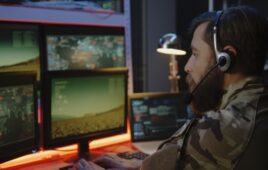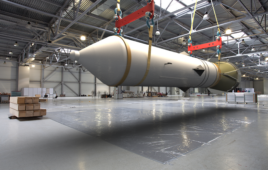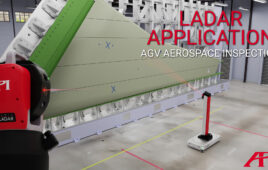 Three Aerospace Engineering at Illinois seniors have applied their penchant for entrepreneurship to develop FreeSkies, a startup company aimed at using drones in filmmaking.
Three Aerospace Engineering at Illinois seniors have applied their penchant for entrepreneurship to develop FreeSkies, a startup company aimed at using drones in filmmaking.
Working in AE Associate Prof. Tim Bretl’s laboratory, Jay Mulakala, Ankur Mehta, and Andrew Putch believe FreeSkies will provide directors an ease of control in filming difficult shots, while reducing the costs associated with the work.
The software the three are developing is intended to make optimum decisions for the user based on data onboard sensors collect. A quadcopter drone “will be able to correct itself and enable maneuver procedures very accurately; filmmakers can say precisely what they want,” Mulakala maintains.
That doesn’t mean the director has to be a computer programmer or a practiced remote pilot. “We want to make it very intuitive and simple,” Mulakala continued. “With a well-thought-out interface, we could just have the user draw or design the path so, boom, you run the code and that’s what you get.”
Wearing a Myo armband device connected wirelessly to the drone, the user simply would wave a hand to establish a path. Points on the path would be stored on a three dimensional grid FreeSkies would create from the targeted space, and the program would instruct the drone to move to those points.
“The idea is to limit the learning curve as much as possible,” said Mulakala, whose job in developing the software has been creating an intuitive user interface.
Mehta’s work has been in applying simultaneous localization and mapping (SLAM) algorithms as a point-locating device in FreeSkies, as opposed to using Global Positioning Systems (GPS). In a localized grid, said Mehta, SLAM can identify a point within a few centimeters; GPS allows a margin of up to three feet from a specified location.
Putch has been working on the software’s ability to correct itself as well as accommodate for outdoor wind and weather.
The three developers met recently with the Champaign Moviemakers Association to discuss their idea and gain suggestions for how to tweak the product. Its reception was positive.
“There’s nothing like this out there, and this is where the industry is going,” Mulakala believes. “Drones are becoming much more a part of our daily lives.”
Drones currently are used in the film industry, but they depend on experienced operators to control the flight, Mulakala said. “The film that’s envisioned is left in the operator’s hands rather than the filmmaker’s. They have to take many shots for the same scene, and that can get expensive depending on what they want in the scene.”
When not using drones, high-angle shots can require equipment such as a large rig with very steady rollers to avoid shaking the camera, or technocranes needing operators and a truck and trailer – all very expensive items that can take hours for setup, teardown and use.
The three students devote 20 to 30 hours each week to developing and perfecting FreeSkies. Their goal is to have a demo ready by April in time for the Cozad New Venture Competition, sponsored by the Engineering at Illinois Technology Entrepreneur Center (TEC).
FreeSkies has earned accolades in the past few months. Just recently, it was accepted to the Lightspeed Ventures Summer Fellowship program, a “post-doc” of summer startup grants that will span 10 weeks in Menlo Park, California. The program will provide the developers with office space, resources, connections, and guidance from experienced professionals, along with $10,000 per individual and an extra $5,000 per team to accelerate the business.
FreeSkies also placed in the top three at the 54 Startup Weekend Competition at the University of Illinois; earned a spot in the top 64 at the Student Startup Madness (SSM) event in Austin, Texas; and won the 1871 regional startup competition at ThinkChicago.
All three students have tried their hands at entrepreneurial projects in the past. Mulakala and Mehta have lived in the Illinois Street Residence Halls Innovation Living-Learning Community (LLC), which provides resources for startup projects. Mulakala and Putch have participated in TEC’s Silicon Valley Workshop, and all the students count the Founders student organization as an excellent resource with which they are affiliated.
Bretl and his work have inspired Mulakala, Putch and Mehta. The AE professor is working on a project using drones in the construction industry, and he teaches “the two pillar, fundamental controls courses offered at the university,” the student said. Bretl also has introduced the young entrepreneurs to other mentors.
The students appreciate the support of AE Department Head Philippe Geubelle, as well.
“A lot of the work Professor Geubelle has been doing to foster and assist student projects in AE has been extremely helpful,” Putch said. “(The department has) provided space, funding, technical expertise and faculty involvement.”
“Even at a university, students can be motivated and passionate but their dreams can be crushed if there’s no money or resources.”
The university setting is a great place for potential entrepreneurs to explore ideas, all three students agree.
“The ultimate goal is the adventure,” Putch said. “For me, it’s the learning; (as students) we’re still in an environment where failure is an option.”
Filed Under: Aerospace + defense, M2M (machine to machine), Student programs




